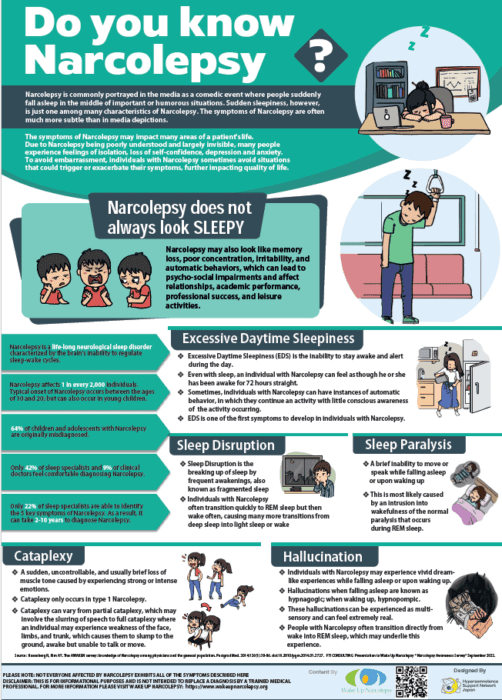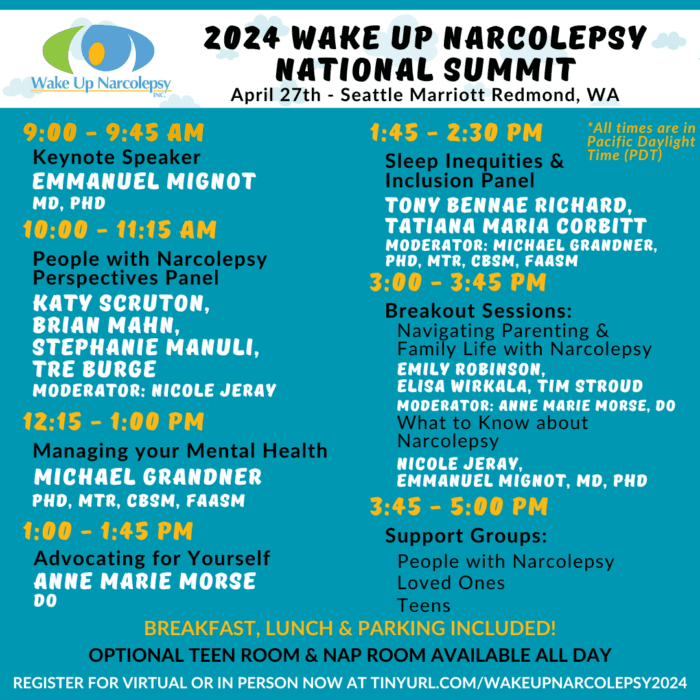Learn about Narcolepsy
- Typical onset of Narcolepsy occurs between the ages of ten and twenty; but can also occur in young children.
- Affects 1 in every 2,000 individuals who have a genetic pre-disposition that is then activated by an environmental trigger.
- Individuals with Narcolepsy, aspects of rapid eye movement (REM) sleep intrude on wakefulness, while wakefulness intrudes on their sleep.
- Individuals with Narcolepsy may quickly enter into REM sleep without first experiencing non-rapid eye movement (NREM) sleep, both at night and during the day.
- Some of the characteristics of Narcolepsy — such as cataplexy, sleep paralysis and hallucinations — are similar to changes that occur in REM sleep, but instead, they occur during wakefulness or drowsiness.
- There are two main types of Narcolepsy:
- Narcolepsy with cataplexy (Type 1)
- Narcolepsy without cataplexy (Type 2)
- Symptoms vary from individual to individual, with some cases being more severe than others.





